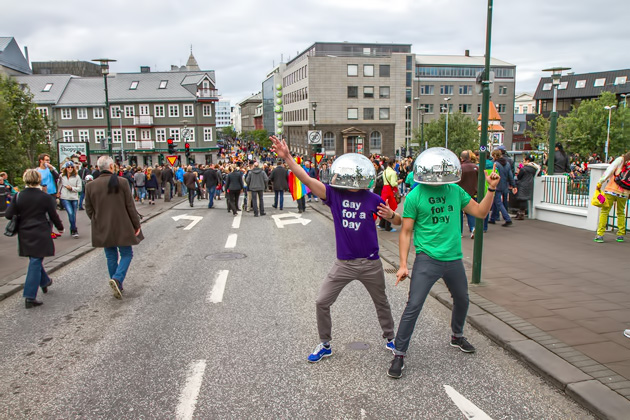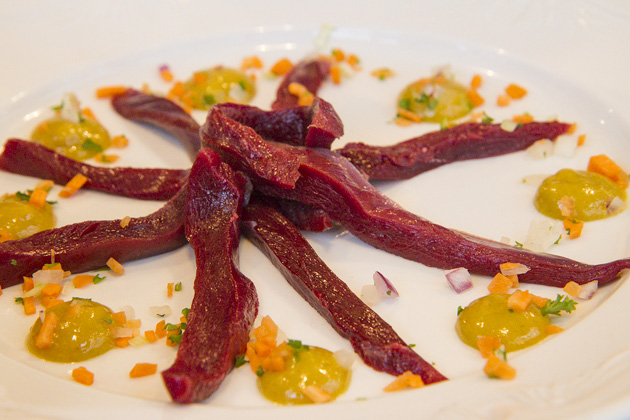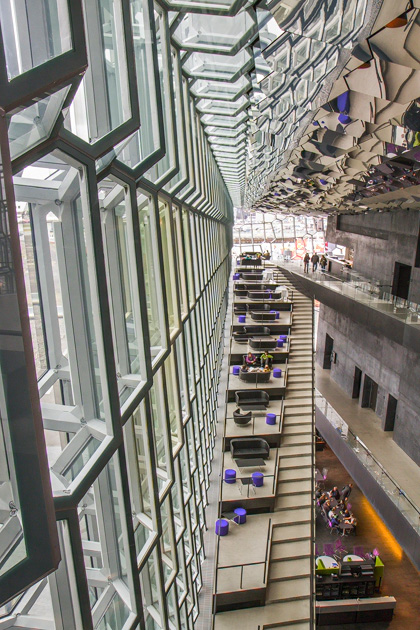Icelandic: Prepare for a Headache
As far as most visitors are concerned, there are two important points to know about Icelandic: (a) it’s one of the world’s most difficult languages to master, and (b) almost everyone in Iceland speaks superb English. So unless you’re here for the long haul, there’s not much reason to even try. I contented myself with the ability to semi-correctly pronounce Icelandic: a steep enough task even with 91 days to practice.
Eyjafjallajökull er stór orð!
Pencils out? Advil ready? Good, let’s get started.
Strange Icelandic Letters!
Þ/þ (Thorn) – Sounds like a “th”. In Icelandic, Thor the hammer-weilding Norse God is written Þór. Þing (assembly) is pronounced “thing”.
Ð/ð (Eth) – Also sounds like a “th”, but with the tongue further back on the teeth (say “father” as opposed to “this”). Anyway, it’s probably close enough for non-native speakers to get away with always pronouncing ð and þ the same way. One big difference is that ð never appears at the beginning of a word.
Æ/æ (Ash) – Sounds like the “ai” in “my”. This one is less strange, but don’t ask me to put it in handwriting. It will come out as a circle-ish scribble regardless of how I concentrate.
Other pronunciation notes: “ll” is spoken like “tl”. So Þingvellir is pronounced “thing-vet-lir”. “J” is pronounced with a “y” sound, so jökull is “yo-kutl”. “Kill me” would be pronounced “Kitl-me”. But I think you would understand. You would see the pleading in my eyes.
Long Icelandic Words!
Icelandic is a Germanic language and, like others of its ilk, mashes nouns together to produce mega-words of terrifying length. Kirkjubæjarklaustur. Eyjafjallajökull. They’re pronounceable, though, if you think of them in their parts… Church (Kirkju) – Farm (bæjar) – Cloister (klaustur). Church-farm-cloister: Kirkjubæjarklaustur! Island (Eyja) – Mountain (fjalla) – Glacier (jökull)… Island-Mountain-Glacier: Eyjafjallajökull!
Ridiculous Archaic Grammar!
Like other Scandinavian languages, Icelandic has its roots in Old Norse. But unlike its siblings, Icelandic has stubbornly refused to modernize, retaining much of the Viking-era grammar. It’s a bit like if we still wrote and spoke Ye Olde English. And while this means that the average Icelander can enjoy the Viking Sagas in their original prose, it’s a nightmare for anyone trying to learn. The grammar is bizarre, with a mind-boggling number of declensions, conjugations, tenses, genders, voices and suffixes. Have you ever heard of a linguistic phenomenon called the quirky subject? I hadn’t until having researched Icelandic for ten minutes. And that just happened to be the point I forever abandoned the notion of learning the language.
Icelandic Names
This doesn’t really belong to the language category, but it’s another Icelandic curiosity that begs mentioning. Unlike elsewhere in the Western world, Icelanders take their last names from their father, instead of from their family lineage. The son of Þór will have the last name Þórsson, while that of Þór’s daughter will be Þórsdottir. So brother and sister would have different last names, and both would differ from those of their parents. A family of four with four different surnames! Because of this, Icelanders go by their first names for almost everything, even in phone books. If you have a friend, teacher, or neighbor named Kári Þórsson, you will always refer to him as Kári… unless you need to differentiate him from another Kári.
Iceland is among the most feminist countries on earth, and it’s a growing trend for children to take their surnames from their mothers instead of their fathers. As someone with absolutely no say or stake in the matter, I am firmly against this. It’s not that I’m a traditionalist or woman-hater or something. It’s certainly more gender equitable, and makes a lot of sense. But isn’t all this confusing enough? Does the Icelandic naming convention really need an additional twist?




As a philologist I found this entry fascinating, even the quirky subject! (which I didn’t know). The last name formation reminded me of the Slavic tradition, where children also get their last name from their father’s name (a patronymic), plus then a family name as a second last name.
Thanks for the nice blog! I plan to take a language course next year and also glanced through the grammar a little bit. My feeling (or should we say: hope:-)?) its that for German-speaking people the language is rather easy. German words also tend to be long (you just take 2 words, combine them and have a new word- in fact, that is rather easy! Instead of learning a new word you just have to combine them! And after some thought, I realized we also have that quirky case in German (though I don`t know the name of it). It is used in rather old expressions, but it is not really a problem- I guess you just need to learn by heart the verbs which needs quirky case. I am more worrying about the inflections….:-)
Love your website. Beautiful, beautiful pictures. However I don’t agree with you at all on the matronymic vs. patronymic names. I think Iceland’s practice is actually much simpler than our continental one (when you think about it, how is it simple to take a random name that your father used but that your dad’s mom or your mom wasn’t born with and had to take up, and then that your daughter will have to abandon? One which doesn’t say anything about who you are and that is often shared by thousands or hundreds of thousands anyway?). And I certainly don’t know why saying you’re your mother’s son or daughter is any more complicated than saying you’re your father’s son or daughter… But personally I’m for the slightly more complicated but much more egalitarian practice of having both names: Jón Gisla og Grétuson for example (Jon, son of Gisli and Gréta). Plus it reduces the number of people with the same name!
Thanks for reading! I didn’t mean to come off sexist, and hope that wasn’t the case… matronymic surnames are certainly no more confusing than patronymic. What I meant was that Iceland’s naming conventions were already relatively complex and the growing trend of mother-based surnames, while completely valid, doesn’t make things more simple (you can now easily end up with a family of six, with six different surnames). But matronymic or patronymic, our observations were meant to be lighthearted, pointing out an unusual convention unique to Iceland. We like the system quite a bit, and I even played around with calling myself “Michael Bradsson” and “Michael Marysson”… and kind of prefer both to “Powell”!